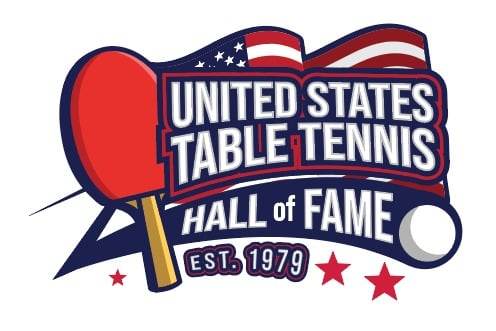Courtesy of Tim Boggan
Davida Hawthorn, 1945 U.S. Women’s Singles Champion, learned her table tennis at what is probably, historically, the most famous Club in U.S. table tennis–Herwald Lawrence’s Broadway Courts in midtown Manhattan, New York City. Lawrence, a West Indian, had infinite patience as a teacher, and his number one protege was David Hawthorn, whom he called “Champ”–quite possibly before she was one.
Speculations about professor-student relationships are always the subject of gossip–and the extent of Lawrence’s relationship with Davida is not clear to me. But Davida–I think with the help of her father, Norman–might already have been part owner of the Club (with NYTTA pioneering official John Morgan) when Lawrence, prepatory to running the place, was just a player there.
Davida was a graduate of the Bankers Athletic League–the precursor of the later Greater N.Y. Table Tennis League. She played for the Guaranty Trust Company, and, during the summer of ’41, she was featured, playing table tennis on Friday evenings, on early CBS television.
For a future National Champion, she began playing very seriously rather late in life. It wasn’t until 1941, when she was 23, that she’d won…well, her first National Ranking: U.S. #29.
But under Lawrence’s tutelage, and with the day-by-day opportunity to practice with and compete against N.Y.’s very good men and women players, her determination and improved defense brought her, by 1943, to U.S. #8. Then, strangely, for another year she didn’t continue moving up the Ranking List, just stayed #8. Semi’s, semi’s, semi’s–that seemed to be her table tennis lot in life.
Then unexpectedly came that astonishing weekend of the ’45 Detroit National’s. Her quarter’s opponent in the Women’s Singles? Sally Green–for 5 straight years the U.S. Champion. But then Champion no longer, for Davida somehow beat her, deuce in the 5th. A freak upset?
We’d soon see, for now in the semi’s she’d meet the very experienced past finalist and future Champion Reba Kirson Monness. Again Hawthorn won in the 5th.
Her final storybook opponent was arch-rival Peggy McLean–another soon-to-be U.S. Champion. Davida had never beaten Peggy–in fact, had had a history of losing close games not only to her but to others. Yet if ever a U.S. woman player rose to the occasion for three straight supremely important matches, it was Davida. She defeated McLean in a gutsy final–I think it was the only time she ever beat her–deuce in the 5th.
Defending her National title, though, was going to be difficult. For, prior to the ’46 U.S. Open at New York City’s St. Nicholas Arena, which her mentor Lawrence was helping to run on 22 tables, Davida had spent eight months on a USO Tour–giving at least two table tennis shows a day, six days a week. Not the best preparation, eh?
But at least she didn’t have to worry about U.S. 1940-44 Champion Sally Green, for, reportedly, after practicing 10 hours a day leading up to this Championship, Sally had become ill and was forced to withdraw. In the semi’s, however, Davida lost to the too formidable Bernice Charney (later Chotras) about to claim her first National Championship.
Unranked that year (because she hadn’t been playing competitively), Davida was still at a playing level with the best of the strong field of her time–fully half a dozen Hall of Famers.
In the following ’46-47 season, in the Eastern’s, she again played (U.S. #2) Peggy McLean a (-19, 21, -19, -23) could-have-gone-either-way match, only this time lost it. Nothing to be ashamed about there, though.
And the one time she represented the U.S. abroad–at the ’47 Paris World’s–she could be proud of her play there too.
In the Women’s Singles, she got to the eighth’s before losing to the former English Champion Vera Dace.
And in both the Women’s Doubles (paired with Leah Thall, later Neuberger) and the Mixed Doubles (teamed with close-to-the-table two-winged attacker Billy Holzrichter) she got to the semi’s.
An eighth’s and two semi’s in one World’s. Few Americans can boast of such a record as that.
So that one glorious 1945 weekend was not just a lucky occurrence. Davida proved herself with sustained play–nationally and internationally. And showed that if one is positioned geographically in the right place, and really wants to commit to reaching top-level play, an unusually late start is really no barrier.
